Young Ambassador Elin Williams interviews Guardian Beauty Editor, Sali Hughes
 Sali Hughes is a Welsh beauty editor, author and journalist whose lifelong affair with beauty started after an encounter with makeup artist Lynne Easton at a bar in Soho. Since then, Sali has built an incredibly successful career for herself, earning a loyal following with her ‘pretty honest’ writing.
Sali Hughes is a Welsh beauty editor, author and journalist whose lifelong affair with beauty started after an encounter with makeup artist Lynne Easton at a bar in Soho. Since then, Sali has built an incredibly successful career for herself, earning a loyal following with her ‘pretty honest’ writing.
With a career spent writing for magazines and newspapers, Sali is also a regular contributor to TV and radio programmes. The success Hughes has had is undeniable, she has written features, opinion columns and celebrity interviews for Grazia, ELLE, Red, The Guardian, The Observer, Glamour and Cosmopolitan just to name a few. As Sali explains in her interview, she is also The Guardian’s resident beauty columnist, featuring weekly in their Saturday magazine and online video tutorials. Hughes is also an author with her first book ‘Pretty Honest’ published in September 2014. In 2018, she also helped create Beauty Banks, a non-profit organisation that seeks to galvanise the beauty community.
All of the above sparked a huge interest for me since I am an aspiring writer who also has a passion for beauty and fashion. I fell in love with both arts at the age of 14 and since then, my passion for them has continued to grow. I created my own blog under the name of My Blurred World back in 2015 and I use my platform to talk about things such as beauty, fashion, lifestyle and disability related topics. My blog has proven to be very successful so far and I recently won two awards for my blog and the content I create. My passions and interests were contributing factors as to why I was the perfect candidate to interview Sali Hughes and I felt both very excited and privileged to interview the successful journalist for our first STRiVE newsletter.
 When did you first start gaining an interest in beauty and makeup?
When did you first start gaining an interest in beauty and makeup?
SH: I think I was about five, I remember sitting on my grandmother’s bed and she was getting ready at her dressing table, putting on some face powder and pink lipstick. I remember just staring at her, I couldn’t take my eyes off of her. I just thought it was such a wonderful thing. I was completely transfixed and that never changed. I was fortunate that my parents never tried to dictate how I should look and what I should wear so I was encouraged to experiment, I could do what I wanted to my face, to my hair, to my clothes and my passion grew from there.
Did you always aspire to become a beauty journalist?
SH: No not at all, I only ever wanted to be a journalist. I told my father when I was about five that I wanted to become a writer and I became a beauty journalist completely by accident and it’s still only a small part of my overall job. When I first came to London, I was too young to get work experience placements which is all I wanted to do. Because I knew quite a lot about beauty and fashion, I was introduced to a makeup artist, quite a well-known makeup artist at the time called Lynne Easton at a bar in Soho. We got talking and she asked me to become her assistant, so that’s what I did for quite a few years. And then, as soon as I was old enough, I went back to my real passion which was to be a journalist. I became a journalist and was a features writer and columnist for many years. I was an editor of glossy magazines and so on. I was Features Director at The Face until the magazine closed and then I went freelance and was successful at that and started writing for The Guardian.
One day, I was talking on Twitter to some girl friends about how terrible the beauty column in The Guardian was. The editor of The Guardian saw that conversation, which many woman were a part of, and the paper got in touch with me and asked if I thought I could do a better job. I said yes, I definitely could. They asked me to write six columns, the way I thought that page should look and so I did and I made one video and then they gave me the job.
I’ve been reading your work for quite a while now and realised that you are very much focused on empowering other women, something that I find to be very important and inspiring. How important do you think it is for women to support each other?
SH: I think it’s incredibly important and it’s hugely important for me. However, I think it’s a misunderstanding to think that supporting women means approving of the actions of all women which is a completely different thing. For example, sometimes, people on the internet shout at me because I’ll say something about Katie Hopkins or Theresa May and they say ‘oh that’s not very feminist’ and I think well, it’s called feminism not Buddhism, it’s not my job to like the actions of all women, that’s ridiculous. What I prefer to do is further the cause of women as a group. And wherever I can, I support and empower women who are trying to do good things and who are doing good work. I think if you are a woman with a platform, however you got there, you have a moral and feminist obligation to not pull the ladder up behind you and to make sure that women who are not quite there yet benefit from your platform and from your exposure and so, I try to do that.
I also try to be kind. For example, I wouldn’t go online and make fun of the way a woman looked and I would never criticise a woman personally for her work. I think there’s a certain moral code that women should apply to each other, I think it’s important. We also have to accept that sometimes, women aren’t given as much exposure as men in so many industries and so many areas and so if you’re able to give them some then it’s good.
 I’m aware that you set up Beauty Banks this year, what inspired you to do so and how effective have they proved to be thus far?
I’m aware that you set up Beauty Banks this year, what inspired you to do so and how effective have they proved to be thus far?
SH: We set up Beauty Banks because my friend Jo Jones and I spent a lot of time last year despairing at the poverty crisis and how much waste we see in our industries. There is so much money in the beauty industry and so many products just lying around. We just couldn’t understand how all these beauty brands had all this stuff and all these people had so little, so we decided to put them together. And then, I was filming a factual report on homelessness for BBC Wales in January and I filmed in a homeless shelter. I saw first-hand how staff were bringing in toothbrushes, toothpaste, razors, sanitary towels and so on, so people could have the basic dignity that the rest of us take for granted. I came home, Jo and I had a bit of a crisis talk, and we said ‘lets just do it’ and so, we tried to use our access and influence in the beauty industry, which has lots of resources, and apply them to poverty charities who have few resources. We also tried to galvanise the beauty community into donating unwanted toiletries because we’re also very aware of plastic waste. I hate waste and I especially hate it when other people really need it. So, we just tried to bring unwanted and unneeded items to people who need them and we distribute through existing charities, food banks and also social groups.
So far, we are in Newcastle, Liverpool, Nottingham, London, Brighton and Milton Keynes. In Manchester, we’ve just started partnering with Superdrug to collect toiletries locally, so that they don’t have to come to us in London which is much better in terms of petrol and so on. We’re hoping that Superdrug will consent to rolling that model out nationwide which would be life-changing for us but we have to see how that goes.
It’s evident from all of your achievements, articles and videos that you’re an extremely hard working person, what motivates you to keep working hard and achieve your goals?
SH: Well, I have a mortgage I have to pay and I have two children and so I have to bring in money. I’ve always been a financially independent person and so, my whole life I’ve learned that if I don’t earn money then things don’t get paid for. But secondly, I think it’s a personality type, I’ve always worked very hard and a big reason for that is that I feel like I’ll miss out on something exciting or i’ll miss out on an opportunity. I can’t bear the thought of somebody else doing something that I want to do. If something comes along that I want to do it and I don’t then someone else will and that is something that would really annoy me, so it’s something which motivates me a lot. Also, I just really love my job. I love my work and I love the variety of things I get to do, the variety of people I meet and I take great satisfaction in it. I think if you love your job then working hard isn’t as hard as it is for other people.
What would you say has been the highlight of your career so far?
SH: Of course, the first time you see a copy of your first book. When your publisher sends you advanced copies of your book and you get the first one in your hand, it’s an unbelievable feeling and something that is very gratifying. That was definitely a career highlight.
Interviewing Ru Paul was also a career highlight, I love Ru Paul. Maxine Peak was another one. I also get a great sense of achievement from doing things I’m really afraid of. So when I’m asked to do something that’s quite frightening, when I pull it off, I feel a great sense of achievement. An example was when I was asked to address The Oxford Union – this is a world famous historic debating society which has been addressed by prime ministers and the like. Clever people essentially. I left school when I was 14, so I was incredibly frightened to do it and I said to my then boyfriend, you have to say I’ve had an organ failure or something, I can’t go in there and he said, ‘you have to go in there, I’m not lying for you and if you don’t go in there, you’ll regret it for the rest of your life’ and so I did. I re-wrote my speech in the loo, 15 minutes before I went on and it went extremely well and so, I’m a big believer that if you’re frightened of it then you should probably do it.
Finally, I’d like to ask, what advice would you give to aspiring journalists hoping to pursue a career in the field?
SH: You have to read an awful lot, you have to be really aware of what other journalists are doing, what makes them different, what makes you different from them. And you have to read opinions that are different to your own, so you do have to expose yourself to journalists that you don’t necessarily agree with. But also, write which I know sounds like a very obvious piece of advice but I feel like it’s often what is missing. I teach writing masterclasses for The Guardian and very often, people will come up to me at the end and say, ‘how do I become a writer?” and I ask, ‘well, what do you write?” and they often respond with ‘nothing at the moment’. Writer’s write and that’s how you become a writer, unless you’re getting up every day and writing words down, you’re not a writer and so, I would say – start a blog, write a diary, make sure you write every single day. Another good exercise is to find a blog that is maybe a bit long, copy and paste somebody else’s words, put them into your own document and edit and re-write them to make them better. This way you can understand the process of improving writing. You obviously can’t publish it because it’s not your work but it’s an incredibly good exercise. Edit someone else’s work and you will see how much better writing can be.
If any students are in a position where they get the opportunity for any placement or work experience, turn up on time, work really hard and don’t be a pain – those are the only things that matter. If you make life easy for people around you, you will do well.
It was an absolute pleasure to interview Sali, I gained such a great insight into the work she does. She’s an extremely inspiring lady who I believe sets a great example for others hoping to pursue a career in journalism and beauty industries alike. My interview with her has ignited my interests further and has definitely encouraged me to continue expressing my passion for writing and I hope it does the same for others who read this interview and learn from Sali’s story.
By Elin Williams
Useful Links
About Elin

Elin is a 19-years-old VICTA Young Ambassador who is currently studying a BA (Hons) degree in Arts & Humanities with The Open University. She has an aptitude for writing and aspires to pursue a career in journalism. One of her main interests is blogging; she has her own award-winning personal blog called ‘My Blurred World’, which she created just over three years ago. Elin’s blog focuses on beauty, fashion, life and disability related topics.Elin decided to join the VICTA Young Ambassador programme as she sees it as a fantastic opportunity to express her passion for writing. She also values the great opportunity that the VICTA Young Ambassador programme will provide her in allowing her to meet new visually impaired individuals and make a new social group of friends. She is very much looking forward to what she will achieve on the VICTA Young Ambassador programme over the year.

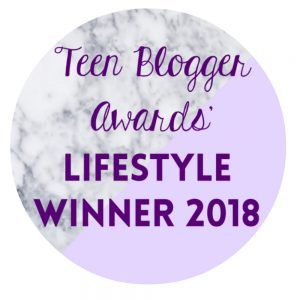



 When did you first start gaining an interest in beauty and makeup?
When did you first start gaining an interest in beauty and makeup?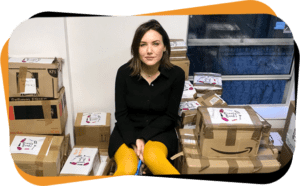 I’m aware that you set up Beauty Banks this year, what inspired you to do so and how effective have they proved to be thus far?
I’m aware that you set up Beauty Banks this year, what inspired you to do so and how effective have they proved to be thus far?


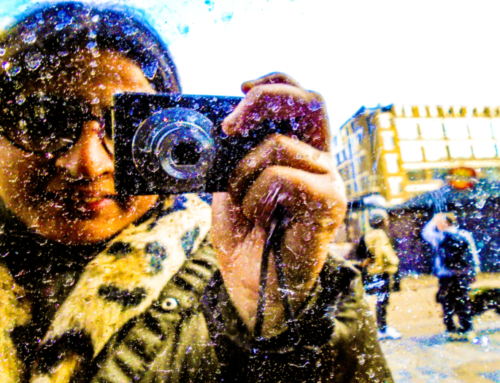


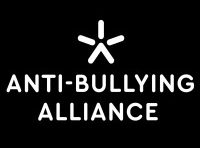

Leave A Comment